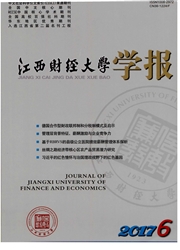

 中文摘要:
中文摘要:
在中国历史上,宋代的茶叶专卖制度的厘定最为系统而细致。各级统治者根据国家财政的需要与社会经济发展的现状,以及被统治阶级的反应,对茶叶等专卖制度不断进行调整,并针对不同部门,采取不同政策,茶叶专卖制度也处于不断演变的过程中。其演变的关键是制度变迁的成本与收益对比,总的演变态势就是由直接专卖制到间接专卖制,从传统的官产、官运、官卖,由官府独利到官督、商运、商销,官商共利的方向转变,政府的作用日益减小,市场的作用越来越大。
 英文摘要:
英文摘要:
The Chinese history has witnessed the most systematic and specialized tea monopoly system in the Song dynasty. The rulers at all levels restructured the system progressively in accordance with the national financial needs and the status of the socio-economic development, as well as the responses of the ruled; meanwhile, different departments received different political treatments. The restructuring or evolution was determined by its cost and benefit, generally featuring a shift from direct monopoly to indirect and a change from governmentally-monopolized production, transportation, marketing and profiting to governmental supervision, non-governmental transportation and marketing, and profit sharing by the government and businessmen. That is, the role of the government was reduced while that of the market growing.
 同期刊论文项目
同期刊论文项目
 同项目期刊论文
同项目期刊论文
 期刊信息
期刊信息
